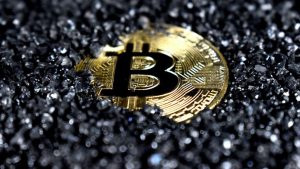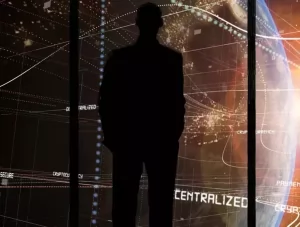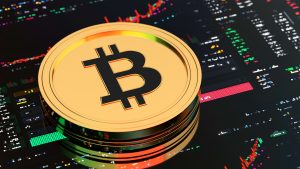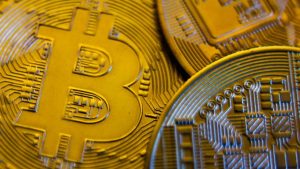
You’ve no doubt seen the picture of a man in Germany, during the Weimar Republic, pushing a whole cart of money, just to make a purchase. The caption read: wheelbarrows replaced wallets.
That’s the effect of hyperinflation. Something that we are skating dangerously close to right now.
In any well-functioning economy, the supply of goods and services roughly equals the demand for those goods and services. So, prices are stable. And everything that we want to purchase, is readily available to us.
That’s the story of Modern America. Generally, we can run to the store to buy anything we need. And for years now, prices have held stable. Remember that 2% inflation that held for so long?
But yesterday, we saw that’s changing. Reported yesterday was a horrific 7.9% inflation rate, the worst in 40 years.
So what’s happening here? Let’s take an in-depth look.
So, as I say if supply and demand in an economy are roughly equal, then prices will remain stable. But inflation starts when one side or the other of that equation gets out of whack.
In modern America, it is almost always the case that demand rises, while supply takes a while to catch up. Causing inflation. In a sense, we can call this a kind of “good” inflation. In that, it’s saying that people’s incomes are rising, and they want more of those goods and services.
Not something that we like to see. But something that is at least reasonably manageable. We turn to the Fed to raise interest rates. Making the cost of borrowing for those credit cards more expensive. And that’s usually enough to tamp down those “animal spirits” as an old Fed Chairman liked to say.
But that’s not at all what’s happening today.
Today people are not feeling rich. They don’t feel like going down to the store and purchasing the latest electronic gadget. Not at all. Today we’re just coming off the biggest economic lock-down of all time. People are just emerging from the full effects of the Pandemic.
So, if it’s not excessive demand that’s creating this inflation. Then we need to look at the supply side of the equation.
And here, there is a nearly perfect historic model, for what we’re now going through.
The place is Germany, and the time is: just after the end of World War One. During the decade of the 1920s, Germany will experience first inflation and latter hyperinflation. Inflation is totally out of control.
This period is known as the period of the Weimar Republic, the government that was in power at the time. Now many will look at the cause of inflation during this time as the excessive amount of War Reparations that Germany had to pay to the victorious Allies after the War. And that’s true.
But there was another factor at work here. One which I believe had at least equal influence in causing Wiemar Inflation. And that was something called the Passive Resistance. German Industry Workers went on strike. Protesting the Allied Reparations and their control of local factories.
Industrial goods declined to near zero. No matter how much you were willing to pay, you couldn’t get those products. The Weimar Economy went completely out of balance. Prices rocketed higher. Inflation that had seldom been seen.
But this inflation was not from excessive demand. But inflation from lack of supply, shortages.
To make a long story short. The Allies relaxed their reparations payments gave control of those factories back to the Germans. German workers went back to work. Factories went online. And within just a couple of years, the inflation in Germany was gone.
Ok, so that’s Germany a hundred years ago.
Let’s look at the driving force behind American inflation today. From my perspective, it is the same as in the Weimar Republic: shortages.
But today’s shortages are driven by Government Policy.
Let’s go back to President Obama. During his administration, shortage, generally in the name of environmental protection, became the US Policy.
You may remember Obama declaring that he would necessarily bankrupt the coal mines. And thereby drive the price of electricity higher. A sentiment that was endorsed by then-candidate Joe Biden in the last election.
More recently this policy of shortage has been writ large, by now President Biden’s oil policies. First canceling federal leases for additional drilling. Then canceling pipelines. And now cutting off 10% of American oil supply, with the boycott of Russian oil.
It’s all a policy of shortage.
And as we saw yesterday, it is having a very predictable effect on higher inflation.
Will we get to the stage of hyperinflation that happened in the Weimar Republic? I really don’t know. It depends, I suppose, just how long these policies are in place.
But I do know that hyperinflation is a very real possibility. Currently, there are two countries in the G20, the largest economies in the world who are experiencing hyperinflation. Both Turkey and Argentina have inflation rates above 50%.
The good news is that as soon as Germany began their production lines, inflation almost immediately began to subside.
Will Joe Biden learn this lesson of history?
We can only pray.
PS Yesterday we saw the highest inflation reading since 1982, at 7.9%. As we noted this is inflation driven by a lack of supply. This country is both literally and figuratively out of gas.
Now the President argues that the hike in gas prices is due to the conflict in Ukraine. As a technical matter, I disagree because that conflict didn’t start until almost the end of February. And those numbers won’t show up until next month.
But that’s not the critical factor here. The critical point is that we are out of gas. If the gas station down the street goes out of business, you don’t quibble over the owners’ politics. You find another gas station.
Your car has to run, after all. You need supply.
But not a word of that from this President. Creating additional gas supplies appears not to be part of his overall thinking.
Now rumor has it that the President has gone to his “friends’ the Saudis, Venezuela, and perhaps even Iran. And all have turned a cold shoulder to our President.
It’s a hard lesson that we’re all going to suffer through. But perhaps now, we can tell Mr. Biden and his green friends just why we need to produce our own.
These high prices tell me that shortages and gas rationing are coming soon.







